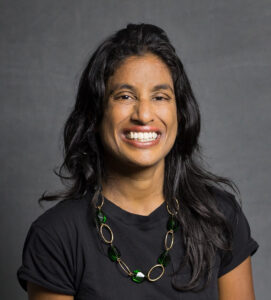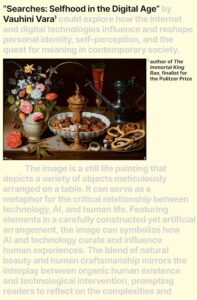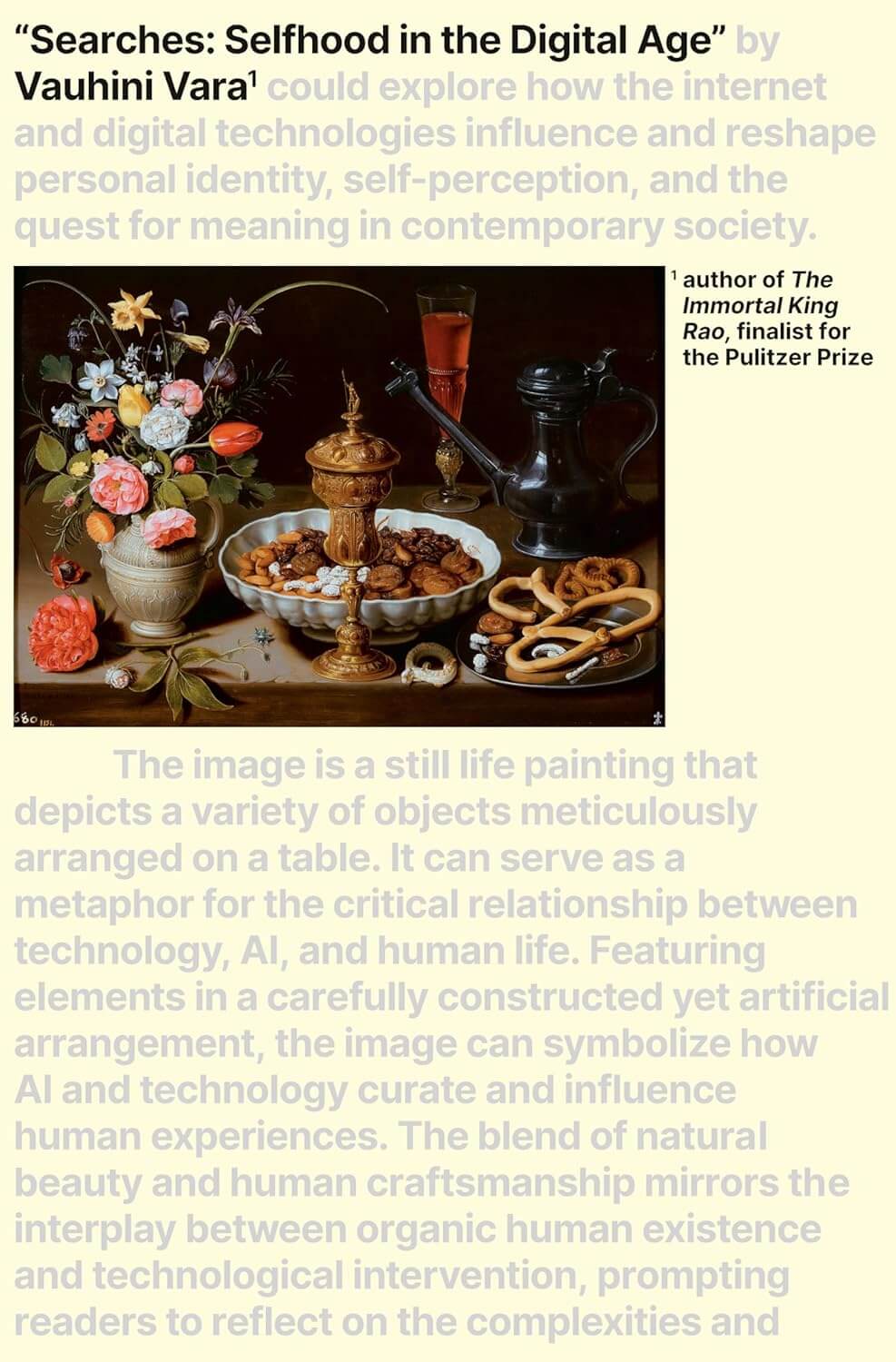Page against the machine
Fort Collins author’s new book offers alternative visions to digital domination
Fort Collins author’s new book offers alternative visions to digital domination
Vauhini Vara’s new book, Searches: Selfhood in the Digital Age, is many things—part memoir of the child of immigrant parents from India; part potted history of the internet, social media and AI; and part political and philosophical critique on the increasingly dominant and deleterious role Big Tech plays in society. One thing the book is not, however, is a doomsday screed sandwich-boarding the end of humanity as we know it.

Vauhini Vara. Credit: Brigid McAuliffe
Instead, the Fort Collins, Colorado author invites us to pause and reflect on the agency we still possess in these the late stages of global capitalism, and to imagine alternative, hopeful futures. In Vara’s view, digital technology isn’t good or bad, only corporate greed—and our own complicity in that system of exploitation—makes it so. If we bring thoughtful intentionality to the choices we make and the tools we use, maybe a galaxy-decimating Butlerian Jihad isn’t inevitable after all.
However, Vara is no facile Pollyanna. She’s a clear-eyed and keen observer of both the immediate and long-term dangers of an unbridled and unchecked Big Tech running roughshod over a disengaged and digitally addicted society.
“The culture born of all this will, naturally, reflect technological capitalism’s values, biases, and desires,” she writes. “After a while … it will converge onto a single totalizing aesthetic and politics, created in the image of technological capitalism. If AI constitutes a dramatic leap in technology, then, without meaningful resistance, it will also constitute a dramatic leap in corporate capture of human existence.”
However, the author tells us, that is just one vision of the future. In the next section of the book, Vara reminds of the inspiring words of the speculative writer Ursula K. Le Guin: “We live in capitalism, its power seems escapable—but then, so did the divine right of kings. Any human power can be resisted and changed by human beings. Resistance and change often begin in art.”
Vara reminds of the inspiring words of the speculative writer Ursula K. Le Guin: “We live in capitalism, its power seems escapable—but then, so did the divine right of kings. Any human power can be resisted and changed by human beings. Resistance and change often begin in art.”
Over the years, Vara has worked as a reporter and editor for the Wall Street Journal, the New Yorker, The New York Times Magazine and Businessweek, where she’s had a front-row seat to the rise of powerful new companies like Amazon, Facebook and Google. While her background as a top-tier tech journalist gives the book an air of authority, Vara’s skills as a novelist (The Immortal King Rao, a 2023 Pulitzer finalist) are what bring Searches to life.
In addition to deeply personal, heartfelt passages on her sister’s death from Ewing sarcoma and her coming-of-age in Seattle (and in AOL chatrooms) as the daughter of Indian immigrants, Vara mixes in experimental sections that include often-tedious “conversations” with ChatGPT, trippy AI-generated images and collage-like arrangements of her own Google searches. It might be tempting to skip over some of these sections (I confess I sometimes struggled with this), but in the aggregate they serve to chart the strange emotional landscape of life in the Digital Age. As the comedian John Mulaney once quipped, “You spend most of your day telling a robot that you’re not a robot.”
Because Vara is so intimately familiar with the lay of the digital terrain, she’s uniquely qualified to remind us of our very humanity.
Click here for more from Ben Trollinger.

